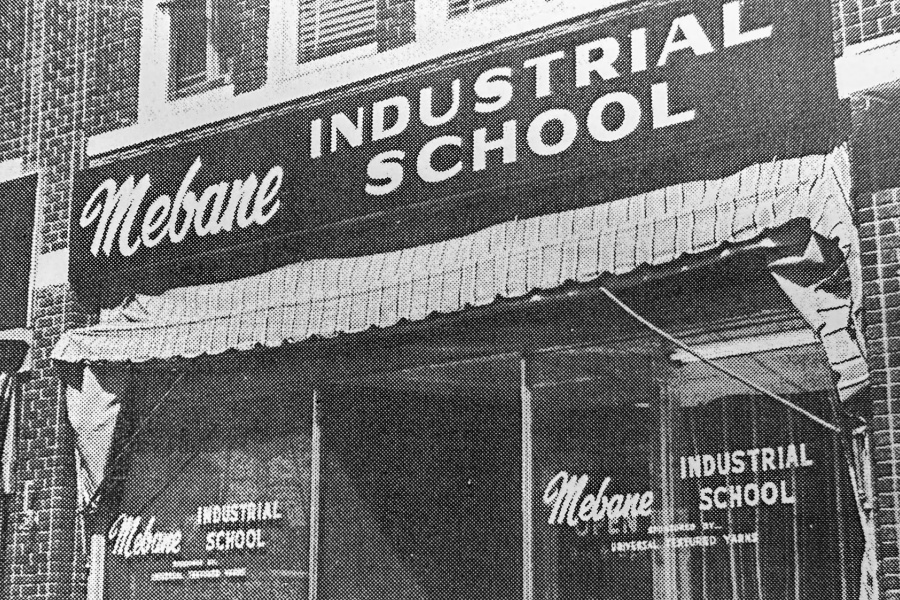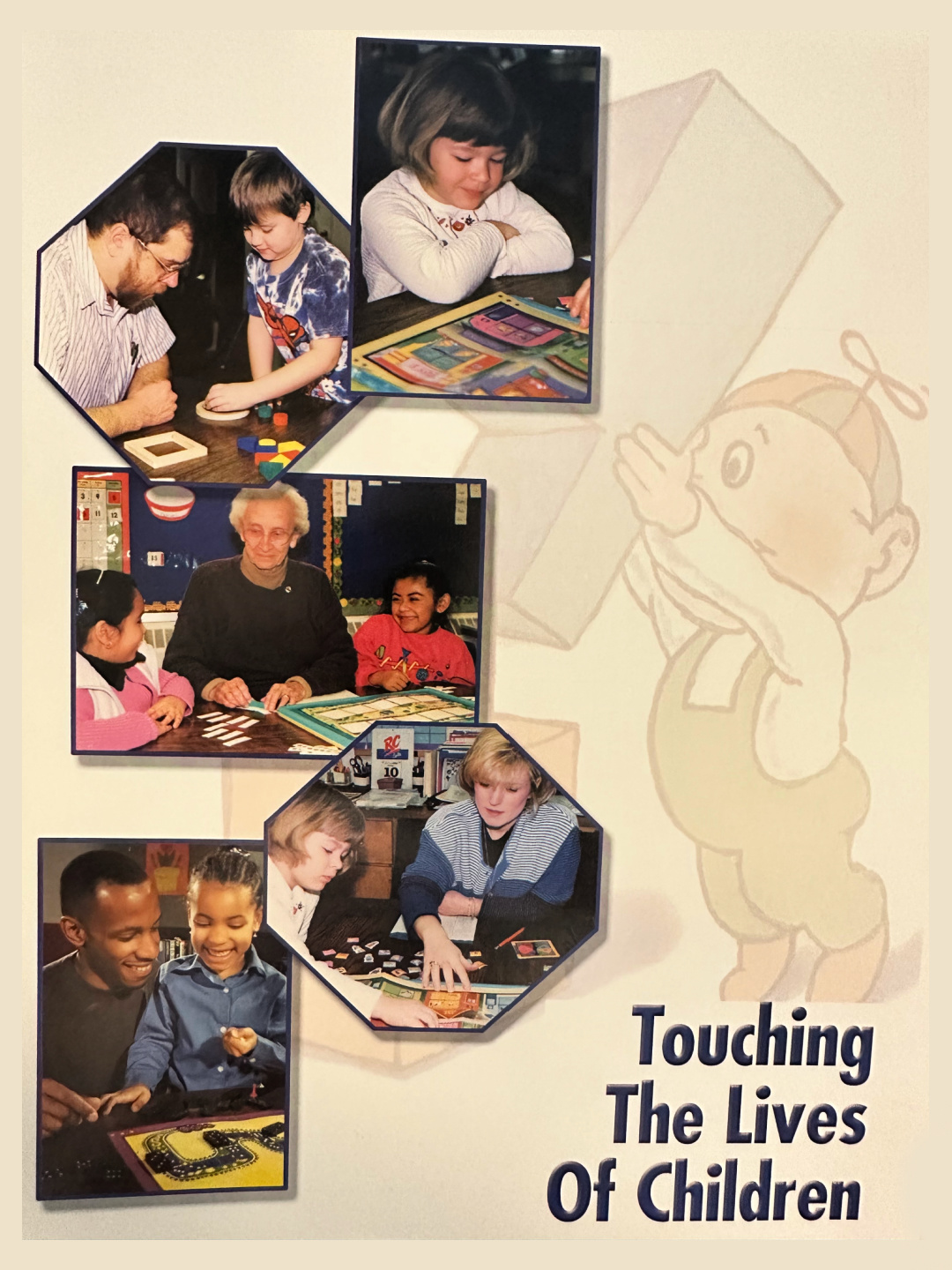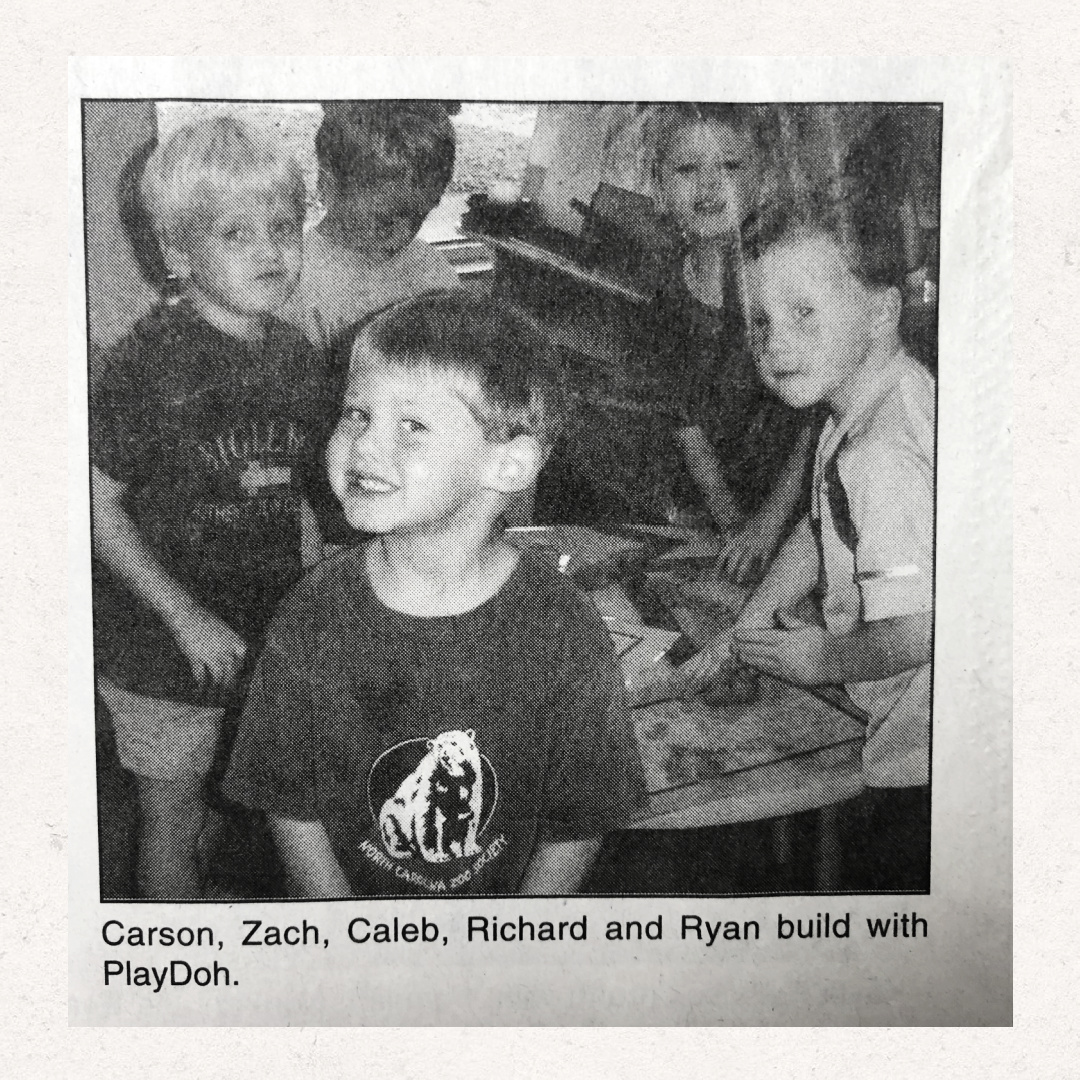Allen Mebane: Transforming Lives Through Education
By Jeanna Baxter White

Allen Mebane believed that “All people learn on a different timeline. But if you create the right tool, everyone can learn at their own pace, and after a period of time, end up at the same destination.”
That conviction would guide his career and future philanthropic ventures.
In 1969, while CEO of Universal Textured Yarns, Mr. Mebane established the Mebane Industrial School, an innovative program that paid people to attend classes and then guaranteed them a job at Universal. He believed that businessmen, as well as industry, had an obligation to their communities, and he knew that education and training would transform people’s lives by providing them with the skills and confidence needed to obtain a job that would allow them to support themselves and their families.
Bolstered by the success of the Mebane Industrial School and convinced that the quality of a nation’s future depends on the education of its young people, he established the Mebane Foundation in 1998 to support innovative educational endeavors.

After retiring from Unifi in 2000, Mr. Mebane focused his full attention on ensuring that the Foundation he had started began helping children of all backgrounds reach their full potential through innovative, transformational school programs. From the start, the Foundation has done everything in its power to ensure that all children, regardless of their background, have the opportunity to receive a top-tier education that will throw doors wide open to extraordinary career opportunities and more fulfilling, successful lives.
To celebrate our 25th anniversary, we will return to the beginning to reminisce the amazing programs that have shaped our history. There have been a multitude of successes and a few failures, but each experience has taught us a valuable lesson as we stay true to our mission of preparing children for life through literacy.
Since research consistently shows that children who are reading at or above grade level by the end of third grade are vastly more likely to succeed in school, the Mebane Foundation’s earliest efforts focused on our youngest learners.

Touching the Lives of Children
Touching the Lives of Children was the first early education program that the Foundation funded. In 2000, it gave an initial grant of $105,135 to be used as leverage for challenge grants from the N.C. Partnership for Children and the Cannon Foundation to support WINGS, a cognitive and language development curriculum developed for preschool children ages 3-6 years.
The well-documented theory behind the program suggested that reaching students at an early age, identifying their needs, and then immersing them in a structured reading program would result in more successful readers by the time they reached third grade. WINGS was implemented in childcare centers, preschools, and schools serving under-resourced communities in 23 counties across North Carolina.
By measuring students’ abilities before and after program participation, program evaluators calculated that, on average, children’s intellectual age increased dramatically when compared to the time of program participation.
In 2002, the Foundation approved a second request for $146,500 to help equip 20 computer-based sites within the different facilities to enable caretakers to enhance the original WINGS curriculum using hardware and software produced specifically for the program. With the Foundation’s interest in technology in the classroom, this was a good match.
While the program yielded positive results for the children and daycare teachers, the program’s reliance on securing government program funding eventually forced the Foundation to back away from the Touching the Lives of Children initiative. The Foundation took away valuable information from the program, which was probably the genesis of future technology projects with the Davie County School system.

Helen C. Gantt Child Development Center
In 2002, the Mebane Foundation made its initial funding commitment to a Davie County daycare center when it granted $213,875 to the Helen C. Gantt Child Development Center. With the funding came a partnership that would enable the Foundation to gain valuable future learning. Initially, this was a three-star rated childcare center; however, it became a five-star facility within two years of joining the program. Having this valuable project under one roof in Davie County enabled the Foundation to observe in a contained environment subsequent early childhood reading programs it would support. The mission of the center was to offer the highest quality care to Davie County children and, at the same time, stand out from its competitors.

Realizing the importance of targeting children during the early developmental years, the center hired quality staff, implemented curriculums, and worked toward parent education and awareness in order to focus on the individual development of each child. This environment also offered a tremendous learning opportunity as a teaching laboratory for early childhood education students at the high school and college levels. In fact, the Gantt Center was one of the initial learning environments in which the Foundation offered its Hill Early Learning Program (HELP), a comprehensive early literacy and reading program developed with the Hill Learning Center in Durham, and was invaluable for future learning and training opportunities for teachers using the HELP methodology.
The Foundation invested almost $900,000 in the center over a four-year period. While the Helen C. Gantt Child Development Center was a success as an educational outlet for early childhood development, it was not independently fiscally sustainable and closed after the Foundation discontinued its lead funding in 2006. However, what the Foundation learned from the experience formed the ongoing inspiring model of success being used in 11 childcare centers in Davie County, including the preschool programs at each of the six elementary schools.
Our next article will explore the Mebane Challenge, a three-year $2.25 million initiative that added the best educational technology to classrooms in every school across Davie County and Pre-K classrooms to five of the six elementary schools.




Leave a Reply
Want to join the discussion?Feel free to contribute!